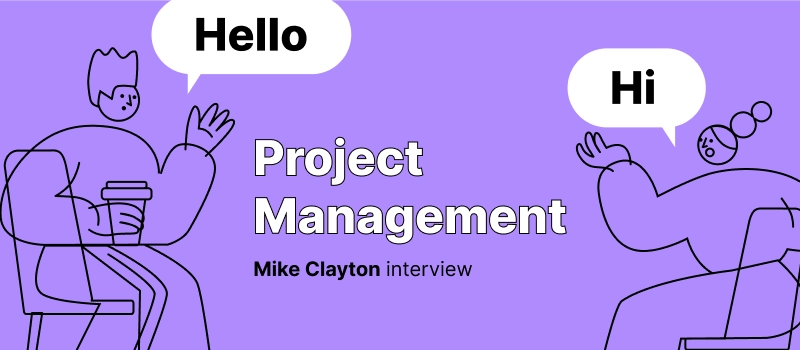
Planning in general is an art and the same goes for project planning. But learning it requires time and effort, and on any step of a project manager’s career errors are possible.
In this article, we’ll go through frequent project planning pitfalls you might experience in your career and provide some practical tips on how to prevent each so you can reduce project risk, meet your budget and make the client happy.
To take action upon the advice you’ll see below, it’s important to first realize the negative consequences of planning errors. These include increased costs, missed deadlines, non-compliance with project requirements, and many more. The end result is inability to satisfy your clients, bad reputation for your business, failing to achieve future business goals, and spending more to fix the errors while earning less.
Now that you’re about to consider possible project planning pitfalls, here’s a list of some of the most common ones and what to do about them:
1. Wrong Estimates
The first major mistake you can make as a project manager is to have wrong estimates. That will ultimately lead to wasting time and not having enough resources. In fact, it’s proven that estimates that aren’t correct will result in project failure.
Take your time when estimating. Know that if you do this right even if it costs you more time and effort, you’ll reap the benefits along the process of completing the project.
2. Not Defining a Project Scope Early on
Aside from defining it wrong, another big mistake you might make is to skip writing the project scope as soon as possible.
However, the project scope must be defined clearly and should involve the stakeholders. You should write down the project scope statement and include the requirements and objectives. That must then be approved by the stakeholders to make sure everyone’s on the same page.
3. Not Understanding the Project Requirements
Each project has different requirements. Carefully studying them in advance ensures you plan accordingly and never miss an important detail that can cost you a lot in the long-run.
Some project managers tend to rush through this process. Maybe it’s lack of experience or having too much on your plate. Whatever the case, you should make it a practice to not just go through the requirements for every next project even if they sound familiar, but to get feedback from superiors and colleagues before you create accurate estimates and begin assigning tasks.
4. Setting an Unrealistic Deadline
You also take a big risk when setting an unrealistic deadline. Unfortunately, that’s something we see quite often in the field of project management.
Not giving your employees enough time to take each step and not leaving room for unexpected issues or delays means bigger mistakes can happen due to being in a hurry.
The worst thing is that team members aren’t likely to share they need to slow down due to peer pressure unless everyone on the team is ready to admit it. It’s your job as a project manager to allocate just the right amount of time so that anyone can feel at ease while allowing the power of a fixed deadline to keep them on track.
5. Not Identifying the Limitations
Expectations are yet another thing that must be managed throughout the work process in a project. However, if these aren’t discussed early on, there might be communication issues that will cost time.
You need to identify what won’t be done and consider it as important as the things that will be completed to achieve the end result. While writing the project scope, make sure to include the activities and responsibilities that you and your team won’t focus on.
6. Wrong Role Assignments
Another common mistake in project management is the risk of assigning the wrong roles. Knowing your team members and giving everyone the right thing to work on is as important as planning the budget and timeline for the project.
To prevent this from happening, you need to know really well who can take the responsibility that goes together with a particular task. That means describing the job as clearly as you can and asking yourself whether the person to get it done must have technical skills, what their communication style is and why that matters, what feedback they’ve given you for previous projects, how they perform in a stressful environment, and more.
Additionally, factors such as how big your team is, whether each employee reports directly to you or a team leader, and to what extent you can motivate someone to take up more responsibility, should also be taken into consideration.
7. Not Monitoring the Work Progress
While monitoring the work done each day and how employees perform is something almost any company is doing these days, many project managers fail to track work progress.
This metric is key because it allows you and your team to stay accountable and to be as productive as possible. The first thing workers need in order to commit to their role and follow the guidelines provided is accurate data that shows how things are going and what’s left to be done.
This has been shown to improve communication too, which is a vital aspect of successful project delivery.
A great way to take control of accountability and ensure everyone’s doing what they are assigned is to meet with the team often and look at the numbers. Everyone should report their progress, after which you can look at the big picture together.
Summary
Errors happen and even the best manager can make one. But it’s crucial to learn from previous projects and use your experience together with the experience of your colleagues and team members so you can deliver the project according to the plan.
To set more realistic estimates and deadlines, you need a time tracking solution that could record your time against tasks and projects, support estimated time feature and provide compelling charts and reports – actiTIME is tailored to do exactly that. Create custom work scope, set up projects, break them down into tasks and assign them to your team members. Employees will need to fill in their timesheets or use timers to record time against the tasks. While you as a project manager can review their time logs, build charts and reports, compare estimated time against logged hours, and more.
Ready to explore actiTIME – start your free 30-day trial. We can also save you some time and give you a product tour – you only need to book a demo.

















































